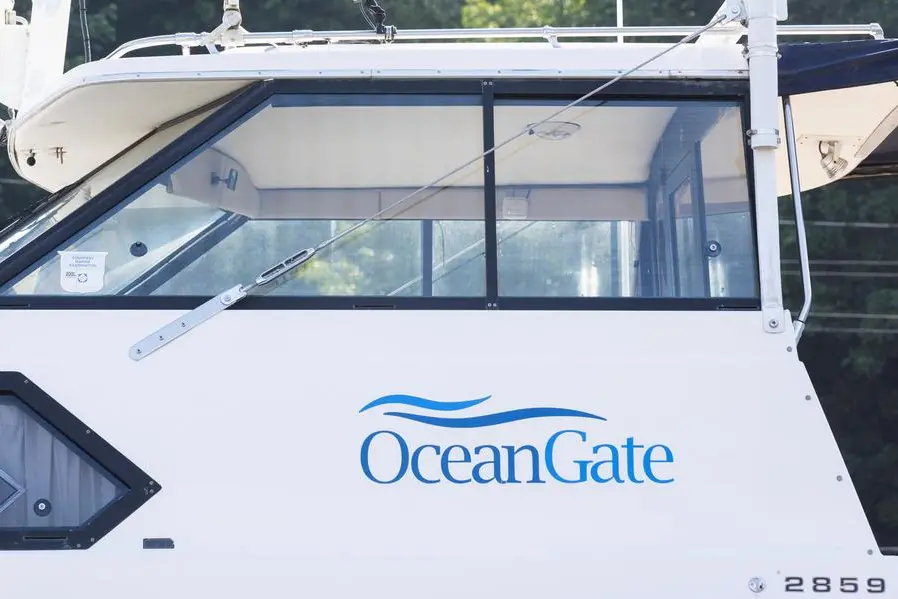PHOTO
The first fatal accident aboard a deep-sea tourist submersible is certain to raise calls for additional safety regulations, but industry experts say any new measures may be impossible to enforce given the international nature of the business.
Moreover, they say the tragedy of the Titan submersible that imploded during its expedition to the wreckage of the Titanic was an outlier, given that the maker of the vessel opted against certifying the vessel, defying industry convention.
All five people aboard the Titan, made by OceanGate Inc of Everett, Washington, were killed in an incident that launched a multinational search and captured the world's attention.
Industry experts say they were the first known fatalities in more than 60 years of civilian deep-sea submergence.
But even as industry leaders braced for increased scrutiny, they said it was difficult to forecast what sort of changes may come.
In the high seas where the Titan and other submersibles operate, there are no regulations and there is no government that controls international waters.
Movie director James Cameron, who became a deep-sea explorer in the 1990s while researching and making his Oscar-winning blockbuster "Titanic" and is part owner of Triton Submarines, said he would support regulation to require certification of vessels, but it would have to be passed in every country where submersibles operated.
"If it's taking passengers, whether they're science observers or citizen explorers, it should be certified," said Cameron, who is part of the small and close-knit submersible community, or Manned Underwater Vehicle (MUV) industry.
OceanGate has not addressed queries about its decision to forgo certification from industry third parties such as the American Bureau of Shipping or the European company DNV.
Of roughly 10 submersibles that exist in the world and are capable of diving to the depth of the Titanic - nearly 4,000 meters below the surface - only OceanGate's Titan was uncertified, said Will Kohnen, chairman of peer-review group Marine Technology Society's (MTS) committee on manned submersibles.
Most tourist submersibles explore coral reefs and other natural phenomenon at 500 meters or less.
In 2018, Kohnen authored a letter warning OceanGate CEO Stockton Rush that forgoing third-party certification for the Titan could result in a "catastrophic" outcome. Rush, the pilot of the Titan, was killed it the implosion.
U.S. Coast Guard Rear Admiral John Mauger said at a Thursday press conference in which he announced that the Titan had imploded that "questions about the regulations that apply and the standards - that's going to be, I'm sure, a focus of future review."
Ofer Ketter, the president of SubMerge, a submersibles consulting and operations company based out of Costa Rica, said he had reassured clients that what happened to the Titan was unlikely to take place in the more hospitable depths that most private submersibles explored.
He said regulators could now focus on operations - how and when such vessels dive - but that no governments currently regulated the manufacture of private submersibles.
While acknowledging the loss of life aboard the Titan, Ketter said "the facts are the facts" when it came to the experimental path OceanGate chose to take.
"Professionals in this industry are sitting at home right now and holding their heads, and saying to themselves, 'What a mess, how do we explain this to the world, how do we differentiate between what most of us do and what OceanGate did?" Ketter said.
Justin Manley, president of Marine Technology Society, said the OceanGate incident could lead to increased oversight, but that "the high seas are inherently not regulated."
Dives in international waters, where no country can impose its law, would remain unaffected.
"It's not that the regulations would be irrelevant, but they probably wouldn't be the biggest forcing function on the industry," Manley said. (Reporting by Brad Brooks and Daniel Trotta; Editing by Stephen Coates)




















